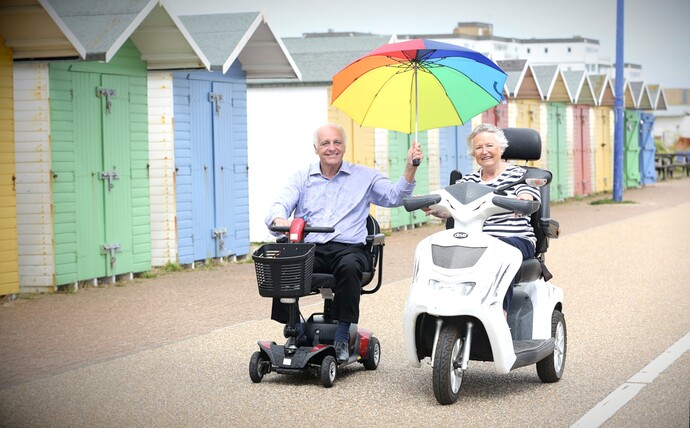James Bond's 'Q' working on weapon to target illegal e-bikes
May 14, 2024

The Ministry of Defence's Science and Technology Lab is developing an anti e-bike weapon that sounds as far-fetched enough to be a James Bond gizmo.
The electromagnetic pulse (EMP) gun is powered by batteries housed in a backpack. The device allows police to disable illegal e-bikes and electric motorcycles involved in crime, reports The Guardian this week.
Nobody disputes that electric motorbikes are so fast and nimble they're extremely difficult to catch in urban areas, but the same can be said for scooters. And it seems strange for the government to be arming the police with outlandish contraptions when they do so little to address the root cause of road danger. Not only were over 29,000 people were killed or seriously injured on UK roads last year, but one million drivers are without insurance - an offence often associated with other criminal activity.
It's also unhelpful when lazy reporting in the media fails to make a distinction between electric assisted pedal cycles (EAPCs) which are commonly referred to as e-bikes, and electric motorcycles.
EMP weapons to target illegal e-bikes: Coming to a street near you soon?
If you're old enough to remember TV detector vans, you'll know by now they were little more than a scare tactic. Ads depicted the detector vans prowling the streets searching for licence fee dodgers.
Tech that can detect electromagnetic signals exists. However, the idea these vans were sophisticated enough to be effective is fanciful to say the least. Likewise, electromagnetic pulse (EMP) devices to disable a vehicle's electronics and bring it to a stop exist already, but using them in real life scenarios brings with it many challenges - not least the requirement for an unobstructed line of sight.
Police roadside test for illegal e-bikes
Dutch police have unveiled a new roadside device for testing whether e-bikes comply with the law.
The mobile rolling road test benches can assess whether e-bikes, speed pedelecs and electric fat bikes comply with the law. Riders of illegal e-bikes risk a €290 fine (almost £250).
The tech is being rolled out to address an increasing number of crashes involving bicycles in the Netherlands - figures that correspond with a soaring number of e-bikes and other electrically powered two-wheelers.
{{cta-cycling}}
Is my e-bike legal?
It can be tricky to know which are road legal. Some importers claim speed limiters are all you need to conform with British law, but that is not the case.
E-bike legislation varies by country so buying second-hand, or online from abroad, can lead to confusion. Here in the UK, e-bikes must have pedals and not provide powered assistance beyond 15.5 mph. The motor must 250W or less. It's important to remember the 250W figure refers to the power of the motor and not the battery.
If the e-bike conforms to these requirements, you can ride it anywhere a conventional bicycle can be used. It also means you won't find it any trouble to insure. For example, here at the ETA, we charge no extra for insuring an electric bicycle. We include £2m third party cover and protection against battery theft as standard. And if you break down, or your battery runs flat, we'll recover you and your bike.
{{cta-cycling}}
The ethical choice
The ETA was established in 1990 as an ethical provider of green, reliable travel services. Over 30 years on, we continue to offer cycle insurance , breakdown cover and mobility scooter insurance while putting concern for the environment at the heart of all we do.
The Good Shopping Guide judges us to be the UK's most ethical provider.
Information correct at time of publication.







